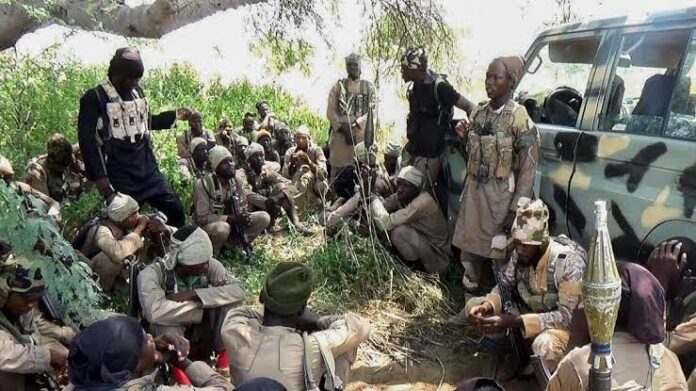A newly emerged militant group called Mahmuda has reportedly seized control of rural communities around Kainji Lake National Park, which spans areas of Kwara and Niger States in North Central Nigeria.
According to reports, the group operates openly in parts of Kaiama LGA—such as Kemaanji, Tenebo, Baabete, Nuku, and Nanu—and in villages in Yashikira District (Baruten LGA, Kwara State), as well as Babana and Wawa Districts in Borgu LGA, Niger State.
On Wednesday, the militants allegedly launched a deadly attack in Kemanji, killing over 15 vigilante members and civilians. Local sources say the group demands ransoms, imposes levies, and forces cooperation through threats and violence.
Known as the Mahmuda group—or Mallam Group—they have reportedly operated in the region for over five years, gradually entrenching themselves after pushing out forest rangers and local resistance forces. Their activities include:
- Enforcing religious rules and controlling movement
- Collecting zakah (alms) from herders and levies from farmers
- Operating roadblocks and regulating trade, including alcohol and tobacco
- Engaging in kidnapping, forced labor, and illegal mining
- Acting as a parallel authority, mediating disputes and preaching loyalty
The group is suspected by some to have links to Boko Haram or militant elements from neighboring countries like Benin and Niger Republic. Others believe it is a splinter Sunni Islamist faction. An audio recording reportedly features the group’s leader promoting their ideology and asserting their authority.
Despite their growing influence, there are concerns among locals that authorities are either unaware or are turning a blind eye to the group’s operations. Some vigilantes have even been forced to cooperate with them under duress to protect their communities.
At the time of this writing, the Mahmuda group has not been officially designated as a terrorist organization by the Nigerian government or international bodies. However, their activities—marked by armed violence, abductions, and imposition of parallel governance—fit the pattern of non-state armed groups that threaten national security.

